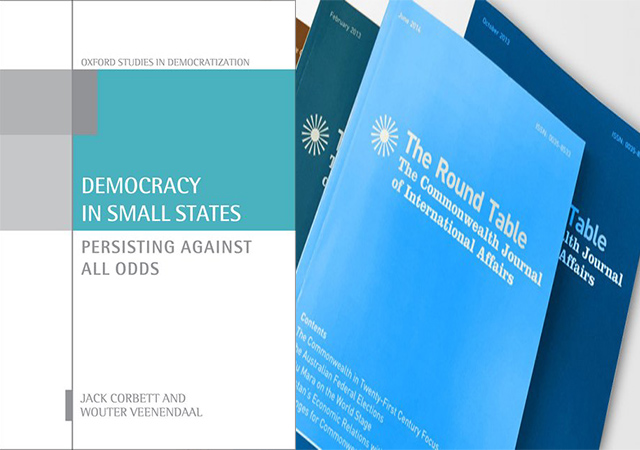
It is a rare and valuable occurrence when a visible gap is found in an important body scholarly literature. This is the case with the centuries-old study of democratization with its overarching theories and comprehensive empirical analysis, which, however, to date has practically excluded 20% of the countries in the world – small states.
The book Democracy in Small States by Jack Corbett and Wouter Veenendaal fills this important gap, providing new evidence from the smallest countries in the world, adding much needed knowledge not only in the area of study – democratization – itself but also in the diverse disciplines with which this study interacts.
In so doing, the book challenges established theories, especially in political science and economics, notably by assigning more importance to the variable of size. Corbett and Veenendaal set out to show that size does matter and that it seems to influence key pillars of existing knowledge in a way that has often been overlooked by established scholarly literature.
Perhaps it is the case that evidence coming from small states was too peculiar to appear true, too isolated as distinct case studies, too scattered in a series of publications that could not possibly be linked, or indeed too few in number relative to those coming from larger states. But this has now changed. The authors of Democracy in Small States set out to provide a common, and theoretically robust, thread through these studies.
The small state lens does not come in isolation. It builds on the work of authors like Lino Briguglio on vulnerability and resilience in small states, Godfrey Baldacchino on political geography and sociology of islands and small states, and Baldur Thorhallsson on international relations and alliances of small states, among others. The added value in this book is its invitation for us to rethink major established theories in political science and economics.
In leaving behind the premise that democratization theories established on the basis of evidence coming from larger countries also apply to small states, the authors offer an alternative take on the theories. Corbett and Veenendaal challenge modernization theory and traditional economic development theories (pp.44). They show that traditional theories correlating industrialization-led economic development to democracy are not always useful to interpret the trajectories undertaken by small states. Rather it is particularistic, and at times clientelistic, relationships between political leadership and citizens which create the redistributive function – especially among low-income countries. This seems to better explain the transition to democracy in small states.
Indeed, Corbett and Veenendaal note that, irrespective of their colonial past, small states share a tendency toward hyper-personal politics. These, in turn, give a higher weight to informal political practices rather than traditional institutional design and constitute the key driving factors behind the democratization in small states (p.85). Interestingly, democracy and lack of institutionalized political parties can coexist, showing that for small states there is ‘no obvious relationship between a stable party system and democratic consolidation’ (p.117). Accordingly, the geography itself can be used as an effective political discourse for instance, when it comes to categorizing threats as ‘insiders’ vs ‘outsiders’. Such a discourse can either consolidate the processes of democratization or restrain pluralism and dissent (p.143).
Stefano Moncada is with the University of Malta.
Democracy in Small States – Persisting against All Odds by Jack Corbett and Wouter Veenendaal, Oxford, Oxford University Press.



